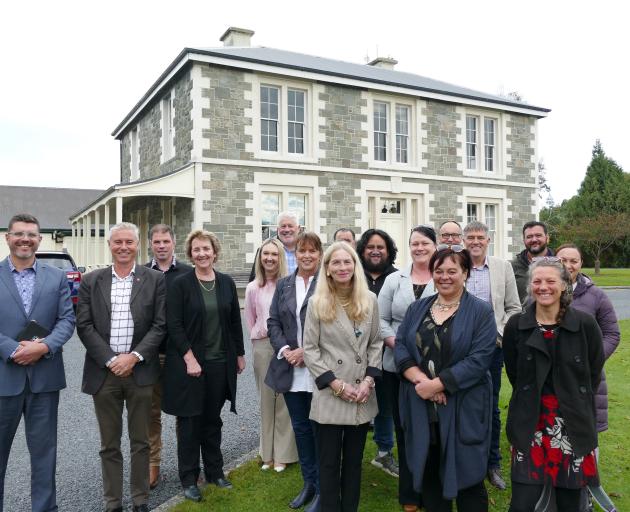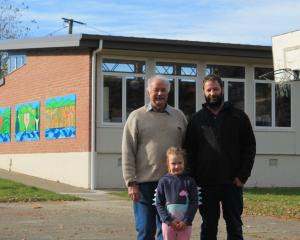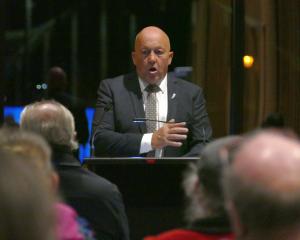
Representatives from the Southern Institute of Technology (SIT), Tai Poutini Polytechnic, Primary ITO, Telford, and Hokonui Runanga gathered at Telford, near Balclutha, yesterday to announce the as-yet-unnamed initiative, which will give farm and other primary industry students and workers greater flexibility to complete courses.
To an audience of about 50 officials, staff and students, SIT deputy chairman Murray Donald announced the initiative would allow for "seamless transition" between work and study in both directions, and across geographical boundaries.
Tai Poutini Polytechnic chief executive Alex Cabrera said the initiative would "breathe life" into the nationwide vocational training reforms taking place.
"By removing the interest of our separate institutions, we can genuinely put the learner at the centre of vocational training in this sector," he said.
Primary ITO customer engagement executive general manager Andrea Leslie said although the finer details of the initiative were still being formulated, key elements were in place.
"By modularising programmes and making them available online to students of all our institutions, it will maximise accessibility for them to pick up or complete studies wherever they are, at any time, and at any stage of their career."
Tai Poutini recovery activities director Vikki Roadley said the collaboration would solve two long-standing issues faced by primary sector trainers.
"In the past, we’ve all seen when skilled students head out on their first work assignment, they’re snapped up for a job, and training gets dropped.
"This initiative will allow those students to continue their studies and match their on-the-job skills with the appropriate knowledge and qualifications for their longer-term career."
It would also allow workers with gaps in their knowledge to continue to upskill, adding value to the industry as a whole, she said.
In a video message, Education Minister Chris Hipkins praised the initiative, and said he and vocational providers across the country would be "watching closely".
"Central to the vocational training reforms is bringing the strengths of the system together to create better outcomes for students and employers, as this initiative promises to do."
The institutions plan to have the new programmes available to students at the beginning of the next academic year.












